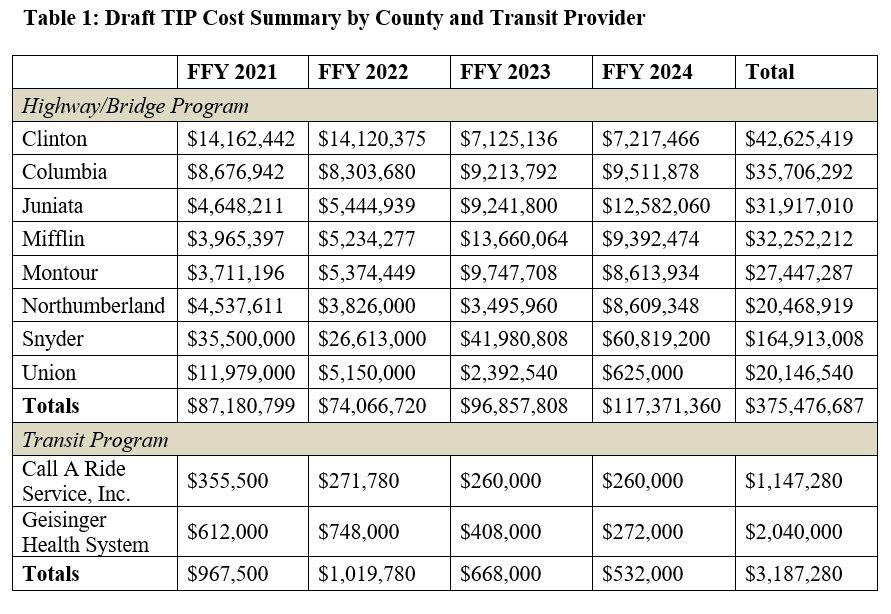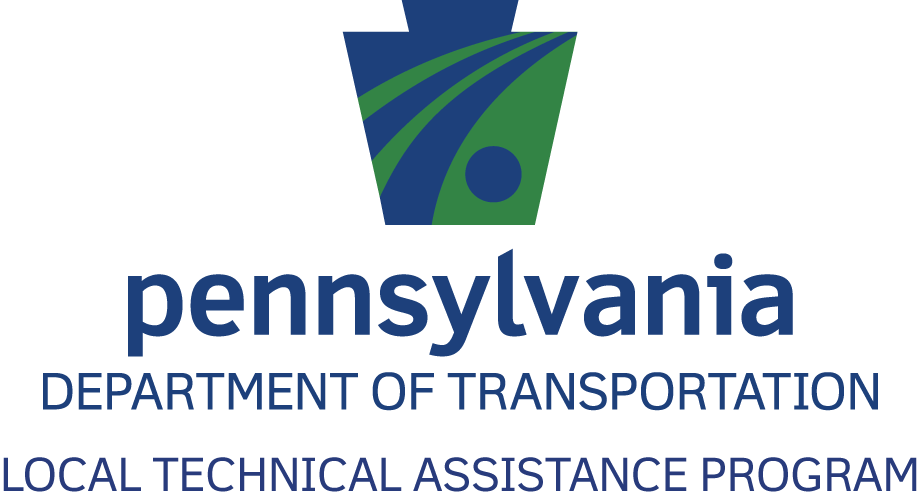Regional transportation priority list open for public comment
SEDA-COG to conduct public comment meeting
From now through May 31, the public has an opportunity to review and comment on a draft list of regionally agreed-upon priority transportation projects for Clinton, Columbia, Juniata, Mifflin, Montour, Northumberland, Snyder, and Union counties.
As part of the public involvement process, a public meeting and information session on the draft 2021-2024 Transportation Improvement Program (TIP) will be held from 6 to 7 p.m. on May 13.
Because of COVID-19 precautions, the public meeting will be conducted virtually, with an opportunity for questions. The meeting can be joined via teleconference or videoconference using the following credentials:
Teleconference: (267) 332-8737; Conference ID: 747467733
Videoconference: https://meet.lync.com/pagov/cmullins/G0C89D06.
If special needs accommodations are needed, please contact the SEDA-Council of Governments (SEDA-COG) Metropolitan Planning Organization (MPO) at 570-524-4491 at least five days before the meeting date so accommodations can be made.
The draft TIP can be viewed at SEDA-COG’s transportation website, www.seda-cog.org/departments/transportation by clicking on Transportation Improvement Program.
All comments on the draft TIP must be received by 4 p.m. on May 31 and must include the name and address of the commenter.
The SEDA-COG MPO works with local governments, businesses, and nonprofits to establish the region’s transportation priorities. Those priorities are detailed in the TIP, updated by SEDA-COG every two years in partnership with the Pennsylvania Department of Transportation (PennDOT) and local project stakeholders.
Proposed TIP projects are valued at $376 million over the next four years. Some projects on the TIP include:
• The Central Susquehanna Valley Transportation (CSVT) project.
• Major traffic signal improvements are planned for Route 150 in Clinton County and corridor-wide safety improvements are planned for Route 54 in Montour County.
• Repaving is planned for portions of Farrandsville Road in Clinton County, Routes 11 and 339 in Columbia County, Route 522 and Electric Avenue in Mifflin County, Interstate 80 in Montour County, and Route 54 in Northumberland County.
• Rehabilitation or replacement of many deficient state and local bridges across the region.
The TIP includes 23 local bridges ─ one in Snyder County, two in Mifflin County, three in Clinton and Montour counties, four in Columbia and Northumberland counties, and six in Union County. Additional new local bridge projects may be addressed through the TIP in the future, using cost savings or special initiatives.
A Public Transit TIP also has been drafted by the SEDA-COG MPO and area transit agencies and includes transit projects worth $3.2 million for Call A Ride Service Inc. in Mifflin and Juniata counties and Geisinger Health System for the LIFE Geisinger Program.
Below, Table 1 shows a funding summary for the SEDA-COG MPO region by county and transit operator for each of the four TIP years, listed by federal fiscal year.




